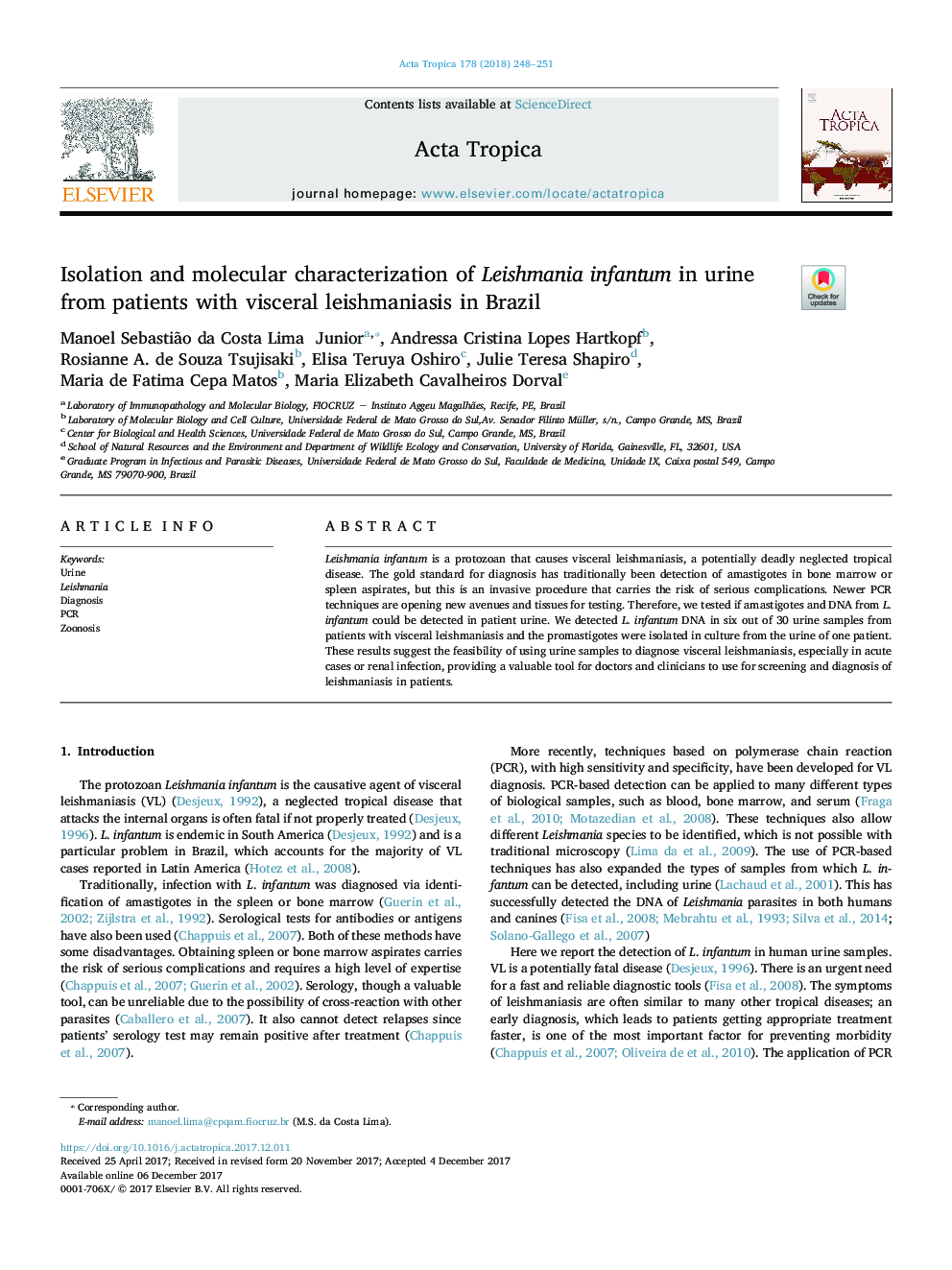| Article ID | Journal | Published Year | Pages | File Type |
|---|---|---|---|---|
| 8744478 | Acta Tropica | 2018 | 4 Pages |
Abstract
Leishmania infantum is a protozoan that causes visceral leishmaniasis, a potentially deadly neglected tropical disease. The gold standard for diagnosis has traditionally been detection of amastigotes in bone marrow or spleen aspirates, but this is an invasive procedure that carries the risk of serious complications. Newer PCR techniques are opening new avenues and tissues for testing. Therefore, we tested if amastigotes and DNA from L. infantum could be detected in patient urine. We detected L. infantum DNA in six out of 30 urine samples from patients with visceral leishmaniasis and the promastigotes were isolated in culture from the urine of one patient. These results suggest the feasibility of using urine samples to diagnose visceral leishmaniasis, especially in acute cases or renal infection, providing a valuable tool for doctors and clinicians to use for screening and diagnosis of leishmaniasis in patients.
Keywords
Related Topics
Life Sciences
Immunology and Microbiology
Parasitology
Authors
Manoel Sebastião Junior, Andressa Cristina Lopes Hartkopf, Rosianne A. de Souza Tsujisaki, Elisa Teruya Oshiro, Julie Teresa Shapiro, Maria de Fatima Cepa Matos, Maria Elizabeth Cavalheiros Dorval,
